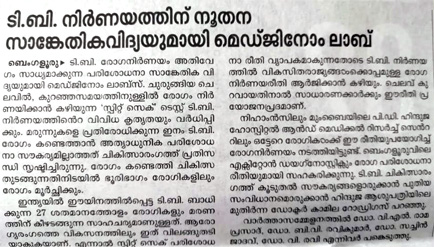- Uses advanced next-generation sequencing (NGS) to analyse 158 genes involved in hereditary cancer risk.
- Identifies mutations in high-risk genes such as BRCA1, BRCA2, MLH1, MSH2, MSH6, PMS2, TP53, and others.
- Detects SNVs, InDels, and copy number variants (CNVs) with high sensitivity and specificity.
- Includes assessment of non-coding variants and mitochondrial genes relevant to specific syndromes.
- Results guide doctors in planning surveillance, preventive surgery, or targeted therapies like PARP inhibitors.
What is a Hereditary Cancer Panel?
A Hereditary Cancer Panel is a comprehensive genetic test that identifies inherited mutations in genes associated with increased cancer risk. Using advanced methods, the test analyses multiple high-penetrance and moderate-risk genes such as BRCA1, BRCA2, MLH1, MSH2, TP53, and others. It helps providers assess a patient’s predisposition to cancers such as breast, ovarian, colorectal, prostate, and pancreatic cancer. This panel enables early detection, personalised risk management, and informed decisions on surveillance or preventive interventions. It is especially useful when there is a family history or when multiple cancer types are present in the patient or family.
Testing Indications for Hereditary Cancer
| Hereditary Breast & Ovarian Cancer Syndrome | Prostate Cancer | Paragangliomas | Thyroid Cancer |
| MEN Syndrome | Lynch Syndrome | Endocrine Cancer | Pancreatic Cancer |
| Renal Cancer | Von-Hippel Lindau Syndrome | Gynaecological Cancer | Li-Fraumeni Syndrome |
| Juvenile Polyposis | Peutz-Jeghers | Retinoblastoma | Hereditary Nonpolyposis Colorectal Cancer |
Clinical Benefits of Hereditary Cancer Panel Testing
- Enables risk estimation for secondary cancers and potential relapse.
- Supports personal and familial risk assessment for inherited cancer syndromes.
- Allows for early detection, improving clinical outcomes and survival rates.
- Facilitates risk management and disease prevention through surveillance and prophylactic surgeries.
- Determines eligibility for PARP inhibitors (PARPi) and platinum-based therapies for personalised treatment planning.
Specifications
- Indications Cancer diagnosed at an young age, the presence of multiple primary cancers in the same person, or a cluster of the same or related cancers across multiple relatives on the same side of the family.
- Methodology Next-Generation Sequencing (NGS) + Multiplex Ligation-dependent Probe Amplification (MLPA).
- Sample Type 3–4 ml blood in EDTA tube.
- Accuracy Highly optimized bioinformatics analysis pipelines; >20,000 samples sequenced. 100% sensitivity and specificity.
- Coverage Covers SNVs, InDels and CNVs across complete coding regions, intron–exon boundaries and deletion/duplication analysis, including BRCA1, BRCA2 and other HRR genes.
Key Highlights of MedGenome's Hereditary Cancer Panel
Broad Variant Detection
Identifies SNVs, InDels, and CNVs for comprehensive mutation analysis.
Full Coding Region Coverage
Covers entire coding regions of genes, not just common mutation hotspots.
Non-Coding Variant Inclusion
Reports clinically relevant variants found in non-coding regions as documented in databases.
Get Genetic Counselling by Our Experts

Connect with Our Experts
MedGenome Patient Stories
MedGenome in the News

Please share your details to get
in touch with our experts.





















